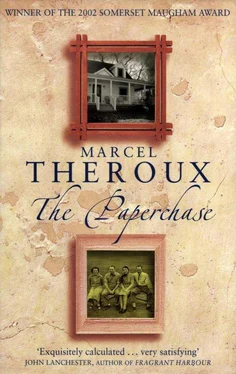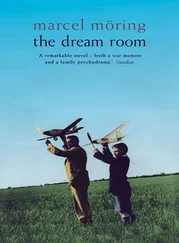‘Skunk,’ said Stevo. ‘You want to take it a bit easy with that.’
I held the fumes in my chest and smiled at him. A stray tendril of smoke curled into my eye and made it water.
‘Thanks,’ I said, and passed the joint back to Stevo and rinsed my mouth out with wine.
‘I just wanted to say, you know,’ Stevo began, draping his arm over my shoulder. ‘We’ve had our ups and downs over the years. You’re a very difficult person, but you’ll always be my friend. I love you, mate. You’re such a character.’
‘Are you all right, Stevo?’
‘Yeah — why do you ask?’
‘You’re being unusually generous.’
‘I had one and a half Es off Fabrice in the pub — but that’s not why I said it.’
I began to feel light-headed and full of giggles — giggles that pushed upwards from my stomach like bubbles in sparkling wine. At the same time, I felt a familiar paranoia building up. I was finding Stevo difficult to talk to and wasn’t sure if it was me, or him, or the drugs. I went out of the kitchen and sat down on the sofa in the living room.
Lloyd had taken his shirt off and was dancing in the middle of the room. This clownish, playful Lloyd made fewer and fewer appearances, but it was always reassuring to see that his body was still capable of usurping its gaolers. I smiled weakly at him, but by now I was feeling too sick to move.
Someone came and sat next to me in the empty seat, so to forestall conversation I put my arm over their shoulders and patted them on the back, as if to suggest I was beyond the reach of verbal communication. After a while, sitting upright was too active a position. I didn’t want to lie down in front of everyone, so I went into my bedroom. I put one foot through the bedclothes and on to the floor to keep the bed from revolving. That was the end of the party for me. I could hear shouts and laughter coming from the sitting room, but I wasn’t able to get up and join in. I just lay there like a corpse at a wake. At the end of the evening some of my friends came in to pay their last respects. Stevo leaned over and ruffled my hair with a sweaty hand. I acknowledged them all by feebly waggling my fingers and groaning, then they filed silently out of my flat for the last time.
THE HOUSE I HAD inherited had been built in the 1880s by a sea captain called Edward Nethers who made his money from whaling — the industry for which Ionia and the neighbouring islands became famous in the nineteenth century. Patrick had bought the house from one of Captain Nethers’ granddaughters, who had grown too infirm to live there alone. She cried when she left it for the last time and gave my uncle a photo of her granddaddy, looking severe in Victorian side-whiskers. Patrick kept the photograph on the mantelpiece in the library — or the room Patrick had designated the library: it was hard to imagine Captain Nethers with his nose in any book but a hymnal or a tide table. Alongside it Patrick put the original title deed to the property and an aerial photograph of the house.
The house was neither old, by English standards, nor large, by American ones; but it was handsome and considered a good example of the island’s architecture. Summer visitors would sometimes make the detour to look at it, occasionally coming up to the porch and asking Patrick’s permission to take photographs. He was invariably courteous and would take them on a tour of the property before sending them away with brown paper bags of the hard little fruits that grew in his garden: apples, pears, peaches that were somehow tasty despite being very furry and juiceless.
It was a house that a child might draw, sketching out a crude oblong for the body, a triangle for the roof, regularly placed windows and a door in the middle. It was made of timber, two storeys high, with sides painted a blinding white, a steeply pitched roof and black wooden shutters on every window. One year, Vivian and I helped Patrick to paint the whole thing, using tall ladders to reach up to the eaves. It was an enormous job, and we had agreed to do it for what seemed like a huge fee: fifty dollars — between us. But it was a week’s work and we finished each day exhausted and splattered with paint. Patrick always talked about covering the woodwork with vinyl siding, which would have spared him the trouble of having it painted, but he was too much of a purist to do it.
On the roof of the house, the Captain had built what is known in the region as a widow’s walk. This was a form of balcony, like a crow’s nest in a ship, that was reached through a hatch in the attic. From it, the island looked like an island, with the sea suddenly huge and menacing. Widows, I suppose, would patrol them hoping to catch a glimpse of a familiar sail on the horizon. Or muse on the immensity that had swallowed their husbands. Patrick used his mainly to check on his TV aerial, which would get blown down periodically in strong winds.
There were two other buildings on the property: a stable off to one side, and a summer kitchen on the seaward side of the house. I don’t know if this was characteristic of the region or a unique example. Since the Nethers family wanted their house to remain cool in summer, the Captain had built a tiny one-room outbuilding to cook in during hot weather. Patrick almost never cooked anyway, so he barely needed one kitchen, let alone two. The summer kitchen contained a bed, a life mask of Keats, a fridge, a vintage jukebox and about thirty egg-weighers.
As I mentioned before, Patrick liked to collect things. A second fridge in the main house contained nothing but ice-cream scoops. The mechanical bank that he had left my father in his will came from a collection of about fifty. Patrick owned more than two hundred glass cup-plates; four complete sets of the works of Dickens; six filing cabinets full of 45s for the jukebox. And there were incipient collections everywhere of things that he was not consciously collecting but that had begun to propagate: blenders and tinned food; playing cards; piano rolls by the player piano; an alphabet of vitamin pills in the bathroom cabinet; lawnmowers and hand tools in the shed, which also contained a rusty cider-press and a trap for the deceased pony Spellvexit.
(An egg-weigher, as the name suggests, is a device used for weighing eggs.)
The main house had entrances front and back. The one that faced the street was shaded by an elaborate wooden awning and a stand of trees. The entrance on the seaward side faced the summer kitchen and looked down the slope to the marsh and the ocean beyond it. I remember this space as teeming with life on Patrick’s birthday or during August barbecues. Patrick, or more likely one of his twenty something girlfriends, would be tending the barbecue — an antique that had a metal chimney and looked as though it was for smelting iron ore; Dad would be cajoling the rest of the family into a game of cricket; Vivian and I would be trying to persuade whoever was our age and female to come on a tour of the property. The sun would be high and bright; the sea glittering beyond the marshes; and the grass so green, and so much trouble to cut, rolling under the apple trees, to the shady part of the garden.
*
‘The grass,’ said my Aunt Judith. ‘It was always the grass. “I’ve got to go back and cut my grass.” I think he used to lie awake at night and hear it growing.’
Judith had met me at Logan Airport. Stocky and tanned, she stood out in the crowd because of her make-up and dark glasses. She was in her late fifties, the middle child of five — the oldest after Patrick and my father but with none of their eccentricities. The first thing she did was give me a hug, enveloping me in her chunky arms and the smell of her perfume. ‘Is that all you’ve got?’ She pointed at my luggage. I told her I had just brought the essentials: egg-weighers, ice-cream scoops.
Читать дальше












